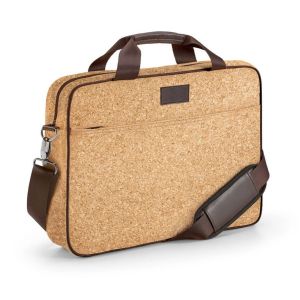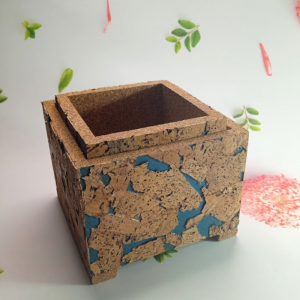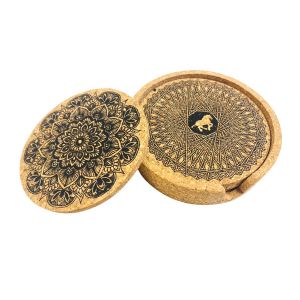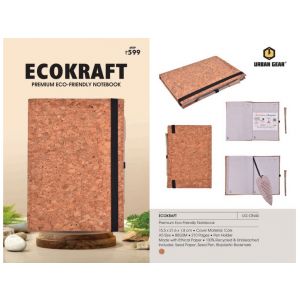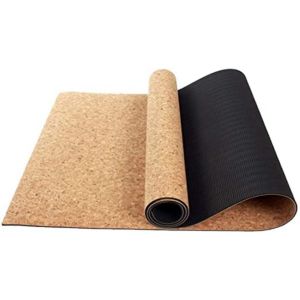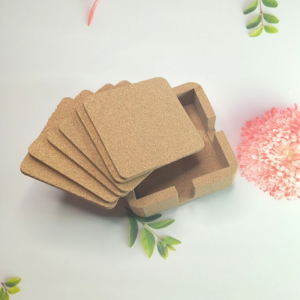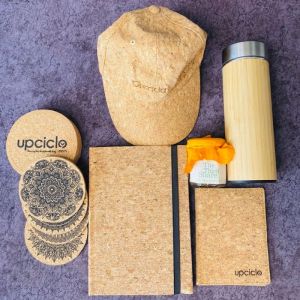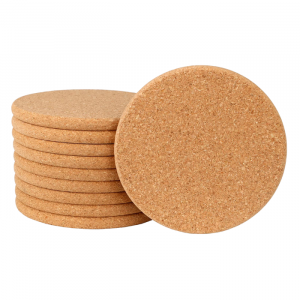Cork, a natural and sustainable material, is extracted from the bark of cork oak trees (Quercus suber). The process of harvesting cork is known as "cork stripping" and typically follows these steps:
Tree Selection: Cork oak trees are carefully selected for cork extraction. The trees must reach a certain maturity level, usually around 25 years, before the first harvest can take place. Harvesting: The cork bark is harvested by skilled workers known as "cork strippers" or "extractors."
Stripping the Bark: Using a specialized tool such as a sharp ax or knife, the extractor carefully makes an incision along the marked line. They then peel away the bark from the tree in large sections. The technique involves skill and precision to avoid damaging the underlying layers of the tree.
Post-Stripping Treatment: After the bark is removed, it is stacked and left to dry for several months, typically outdoors.
Sorting and Processing: Once the cork bark is sufficiently dried, it is taken to a facility where it is sorted based on its quality and intended use. The bark is carefully inspected, and any damaged or low-quality sections are discarded. The remaining cork is then processed through various techniques, such as boiling, steaming, or pressing, to further enhance its properties and prepare it for commercial use.
Manufacturing and Application: The processed cork is transformed into a wide range of products, including cork stoppers for wine bottles, flooring, insulation materials, gaskets, and more. The manufacturing processes vary depending on the desired end product, but they often involve cutting, shaping, and treating the cork.
Sustainable Regrowth: It does not harm the trees. After the bark is removed, the cork oak trees continue to grow and regenerate new bark, which can be harvested again after a period of around nine to twelve years.
Some examples of gifts available for corporates or anyone else to choose from that are sustainably procured and deried from cork making it a great choice.
Cork Coasters: Cork coasters are practical and stylish gifts that protect surfaces from heat and moisture. They come in various shapes, sizes, and designs, making them a versatile choice for any home or office.
Cork Notebooks: Cork-covered notebooks are trendy and sustainable alternatives to traditional paper notebooks. The cork cover gives them a unique and natural appeal, making them a great gift for those who appreciate eco-conscious stationery.
Cork Wallets: Cork wallets are lightweight, durable, and eco-friendly options for organizing cards, cash, and IDs. They often feature multiple compartments and a slim profile, making them convenient for everyday use.
Cork Bags and Purses: Cork bags and purses are stylish, lightweight, and sustainable alternatives to leather products.
Cork Jewelry
Cork Planters
Cork Keychains:
Cork Home Decor
Cork Wine Accessories
Cork Travel Accessories
Need to Know more about CORK ? Read Through!
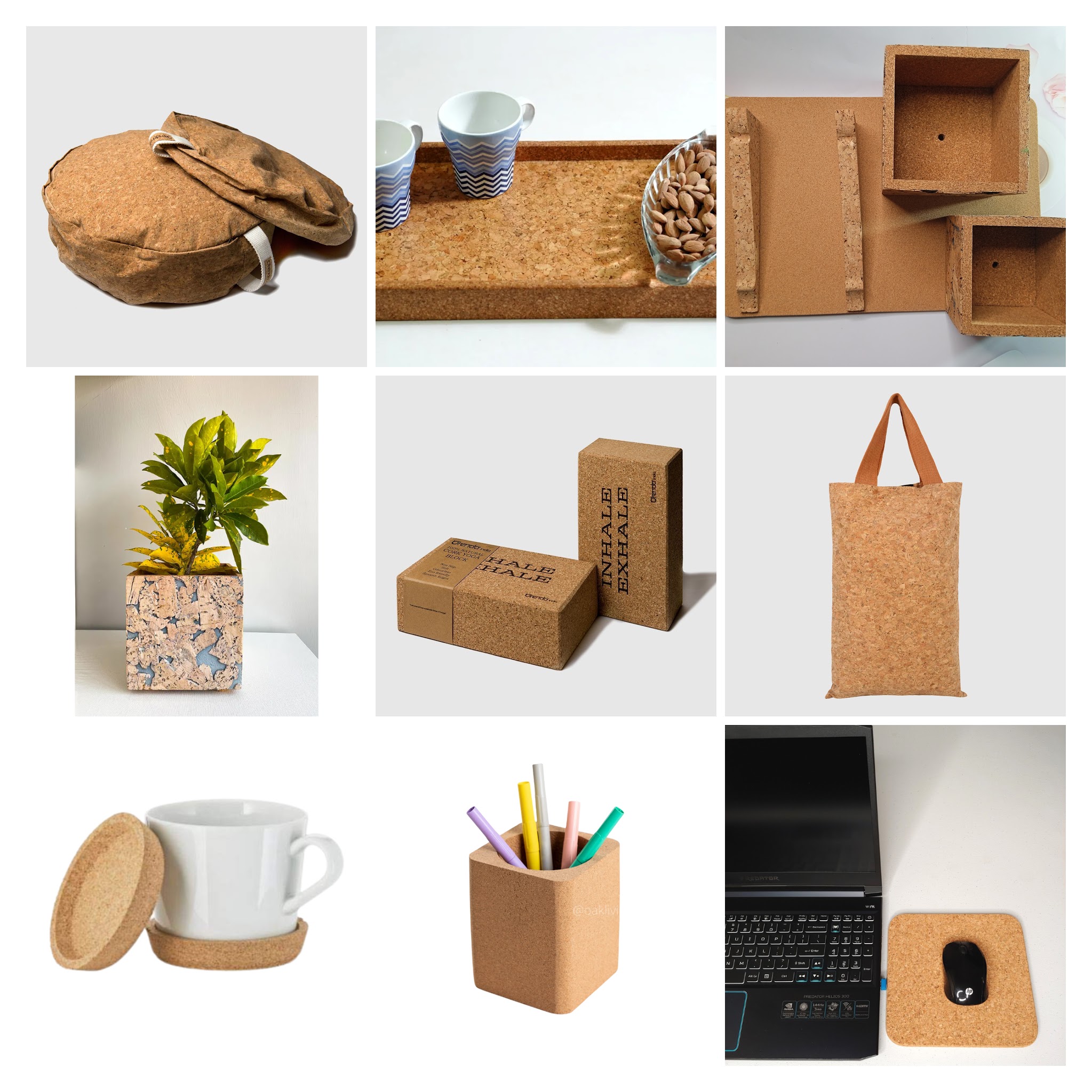

Is cork 100% Sustaianable product?
Cork is considered one of the most sustainable materials available. While it may not be 100% sustainable in an absolute sense, it possesses several characteristics that make it highly eco-friendly. Here's why cork is considered a sustainable product:
Renewable Resource: Cork is harvested from the bark of cork oak trees, primarily in Mediterranean countries such as Portugal, Spain, and Italy. The harvesting process involves carefully stripping the outer bark without harming the tree. Cork oak trees have a lifespan of up to 200 years, and they can be harvested every nine to twelve years, allowing for a renewable and long-lasting source of cork.
Low Environmental Impact: The production of cork has minimal environmental impact. Harvesting cork does not require the cutting down of trees, as only the outer bark is removed. This allows the trees to continue growing and absorbing carbon dioxide from the atmosphere. Additionally, the process of transforming cork into various products is relatively energy-efficient and does not involve the use of harmful chemicals.
Carbon Sink: Cork oak forests act as significant carbon sinks, capturing and storing carbon dioxide from the atmosphere. These forests play a crucial role in mitigating climate change by absorbing carbon emissions and promoting biodiversity.
Biodiversity Conservation: Cork oak forests are home to diverse ecosystems and support a wide range of plant and animal species, including endangered species such as the Iberian lynx and the Barbary deer. The preservation of cork forests contributes to the conservation of these habitats and promotes biodiversity.
Recyclable and Biodegradable: Cork is a highly recyclable material. It can be ground and reused to create new cork products or used as a natural additive in other materials. Additionally, if left to decompose, cork is biodegradable, breaking down naturally without causing harm to the environment.
Water Efficiency: Cork oak trees are well adapted to survive in regions with low water availability. They have deep root systems that help them access water from deep within the soil, reducing the need for irrigation. This water efficiency makes cork production less water-intensive compared to other materials.
Versatility and Durability: Cork products are known for their longevity and durability. Cork's natural properties make it resistant to moisture, mold, and rot. Its ability to bounce back and retain its shape makes it suitable for various applications, from flooring to insulation, reducing the need for frequent replacements.
Are cork products washable ?
Cork products are generally not designed to be fully submerged in water or machine washed. While cork itself is naturally resistant to moisture and water damage, the construction and finishing of cork products may include other materials, such as adhesives or protective coatings, that are not waterproof. Therefore, it is important to follow specific care instructions provided by the manufacturer or seller for each cork product.
For cleaning cork products, it is recommended to use a soft cloth or sponge dampened with a mild soap solution and gently wipe the surface. Avoid excessive moisture and do not soak or immerse the product in water. After cleaning, it's essential to allow the cork to air dry completely before using or storing it.
Additionally, it is important to note that different cork products may have specific care requirements. For example, cork coasters or placemats may be more prone to staining from liquids or food spills. In such cases, it's best to clean them promptly with a damp cloth and mild soap, taking care to remove any residue or stains. Some cork products may also benefit from occasional conditioning with a cork-specific moisturiser or sealant to help maintain their appearance and durability.
Always refer to the care instructions provided by the manufacturer for specific guidance on cleaning and maintenance of your cork product. By following the recommended care guidelines, you can help preserve the beauty and longevity of your cork items.
Is cork a durable material
Yes, cork is known for its durability. Despite its lightweight and soft appearance, cork is a resilient material that can withstand regular use and maintain its integrity over time. Here are a few reasons why cork is considered durable:
Impact Resistance: Cork has a cellular structure that consists of tiny air-filled compartments. These compartments act as natural shock absorbers, allowing cork to compress and then quickly bounce back to its original shape when subjected to pressure or impact. This property makes cork resistant to dents and damage from everyday wear and tear.
Wear Resistance: Cork is highly resistant to abrasion and friction. It can withstand repeated use without showing signs of significant wear. This makes cork products suitable for high-traffic areas or items that are frequently handled, such as cork flooring, coasters, or bags.
Water Resistance: Although cork is not completely waterproof, it is naturally resistant to moisture. The suberin, a waxy substance found in cork, creates a protective barrier that helps prevent water absorption. This inherent resistance to water makes cork products less susceptible to warping, rotting, or mold growth, enhancing their durability.
Chemical Resistance: Cork is resistant to many chemicals, including common household cleaners and solvents. This resistance allows cork products to maintain their integrity even when exposed to various cleaning agents or accidental spills.
Longevity: Properly cared for, cork products can have a long lifespan. The material is known for its durability and ability to maintain its properties over time. With regular maintenance and following the manufacturer's care instructions, cork products can remain functional and aesthetically pleasing for many years.
It's important to note that while cork is durable, its specific durability may vary depending on the quality of the cork and the construction of the product. The thickness and density of the cork, as well as the quality of adhesives or finishes used, can influence the overall durability of a cork product.
Overall, cork's combination of resilience, impact resistance, wear resistance, and water resistance contribute to its reputation as a durable material. Whether it's used in flooring, furniture, accessories, or other applications, cork offers a balance of durability and natural properties that make it a popular choice for various products.
How long will my cork accessory last?
The lifespan of a cork accessory can vary depending on several factors, including the quality of the cork, the specific product, and how well it is maintained. Generally, cork accessories are known for their durability and longevity. With proper care, a well-made cork accessory can last for many years. Here are some factors that can influence the lifespan of a cork accessory:
Quality of the Cork: The quality of the cork used in the accessory plays a significant role in its durability. Higher quality cork, which is carefully harvested and processed, tends to be more durable and long-lasting. It is essential to choose products made from high-quality cork to ensure longevity.
Construction and Craftsmanship: The construction and craftsmanship of the accessory can impact its lifespan. Attention to detail, quality of stitching or bonding, and overall design can contribute to the durability of the product. Well-constructed cork accessories are less likely to experience premature wear or damage.
Frequency and Intensity of Use: How often and how intensively you use the cork accessory can affect its lifespan. Accessories used daily and subjected to rigorous use may show signs of wear sooner than those used less frequently or with gentler handling. Consider the intended use and choose products that are appropriate for your specific needs.
Maintenance and Care: Proper care and maintenance are crucial for extending the lifespan of any accessory, including cork items. Follow the care instructions provided by the manufacturer, which may include recommendations on cleaning, conditioning, and storage. Regularly cleaning and protecting the cork from excessive moisture, heat, and direct sunlight can help preserve its appearance and integrity.
Individual Use and Handling: The way you handle and use the accessory also influences its lifespan. Treating the item with care, avoiding rough handling or exposure to sharp objects, and using it in a manner consistent with its intended purpose can help maintain its condition over time.
It's important to note that while cork accessories are generally durable, they are not indestructible. Eventually, with extended use and natural aging, some signs of wear may appear. However, by choosing high-quality cork products and providing proper care, you can maximize the lifespan of your cork accessory and enjoy its functionality and aesthetics for many years.
Is cork products best for corporate gifts?
Cork products can be an excellent choice for corporate gifts for several reasons. Here are some factors that make cork products a great option for corporate gifting:
Sustainability: Cork is a sustainable and eco-friendly material. It is harvested from the bark of cork oak trees without harming the trees, allowing them to continue growing and absorbing carbon dioxide. Choosing cork products as corporate gifts aligns with environmentally conscious values and showcases your company's commitment to sustainability.
Unique and Stylish: Cork products have a distinctive and natural appearance that sets them apart from traditional corporate gifts. The texture and pattern of cork can add an element of uniqueness and sophistication to the gift, making it memorable and visually appealing.
Versatility: Cork can be molded and shaped into various products, offering a wide range of options for corporate gifting. From coasters and notebooks to wallets and bags, there are numerous cork products available to suit different preferences and needs. This versatility allows you to find the perfect gift that aligns with your recipients' interests and preferences.
Practicality and Functionality: Cork products are not just aesthetically pleasing but also highly functional. Cork's natural properties, such as moisture resistance and durability, make it suitable for everyday use. Corporate gifts that are practical and serve a useful purpose tend to be appreciated and used by recipients, enhancing their value.
Branding and Customization: Cork products can be easily customized and branded with your company logo or message. This allows you to create personalized gifts that promote your brand and leave a lasting impression on recipients. Customization adds a thoughtful touch to the gift, making it more meaningful and memorable.
Corporate Social Responsibility: Choosing cork products for corporate gifting demonstrates your company's commitment to social responsibility. By supporting sustainable materials and environmentally friendly practices, you send a positive message about your corporate values and encourage others to make conscious choices.
When selecting corporate gifts, it's important to consider the preferences and interests of your recipients. While cork products have numerous advantages, it's essential to ensure that they align with the tastes and needs of the individuals or companies you are gifting to.
By choosing cork products as corporate gifts, you not only offer unique and sustainable items but also contribute to the promotion of eco-friendly practices and showcase your company's commitment to responsible gifting.
Can I use cork fabric to make bags and would they last
Yes, cork fabric can be used to make bags, and they can be quite durable. Cork fabric, also known as cork leather or cork textile, is a versatile and sustainable material that offers several benefits for bag making. Here's why cork fabric is a good choice for bag construction and why they can last:
Strength and Tear Resistance: Cork fabric is known for its strength and tear resistance. It can withstand pulling and stretching without easily tearing or fraying. This quality makes it ideal for bags that may undergo stress and handling, ensuring that the bags maintain their structural integrity.
Lightweight: Cork fabric is lightweight, making it comfortable and convenient for everyday use. Bags made from cork fabric are generally lighter compared to bags made from other materials, reducing the overall weight you carry while still offering durability and functionality.
Eco-Friendly: Cork fabric is a sustainable and environmentally friendly alternative to animal leather. It is made from the bark of cork oak trees, which are harvested without harming the trees. This sustainable sourcing adds to the appeal of cork fabric bags as they align with eco-conscious values and contribute to a more sustainable lifestyle.
Versatility and Aesthetic Appeal: Cork fabric comes in a variety of textures, colors, and patterns, offering a wide range of design options for bag making. The natural and unique appearance of cork fabric adds an element of style and sophistication to bags, making them visually appealing and fashion-forward.
To ensure the longevity of cork fabric bags, it is important to handle them with care and follow the manufacturer's care instructions. Avoid exposing them to excessive heat, direct sunlight, or harsh chemicals. Regular cleaning and conditioning can help maintain the fabric's appearance and prolong the life of the bag.
Is cork naturally Heat resistant
Cork is naturally heat resistant to some extent, but it has its limitations. Here's what you need to know about cork's heat resistance:
Moderate Heat Resistance: Cork has relatively good heat resistance, and it can withstand moderate temperatures without significant damage. It can handle hot items such as cups or plates without immediate harm. However, it is important to note that prolonged exposure to high heat can cause cork to degrade or discolor over time.
Thermal Insulation: Cork is known for its excellent thermal insulation properties. It acts as a natural barrier against heat transfer, helping to maintain the temperature of objects placed on cork surfaces. This makes cork suitable for use as trivets or heat-resistant mats to protect tabletops and counters from hot dishes or cookware.
Charred Surface: When exposed to direct flame or extremely high heat, cork can char or burn. The surface layer of cork may darken or become discolored if subjected to intense heat. Therefore, it is advisable to avoid direct contact with open flames or excessive heat sources to prevent damage to cork products.
Vulnerability to Extreme Heat: Cork is not designed to withstand extreme heat, such as placing it directly on a hot stove or using it as a heat-resistant barrier for prolonged exposure to high temperatures. Extreme heat can cause cork to deteriorate, lose its properties, or even catch fire. It is crucial to exercise caution and use appropriate heat-resistant materials for such applications.
Overall, while cork has some inherent heat resistance, it is essential to handle it with care and avoid exposing it to excessive heat or direct flames. Using cork as a heat-resistant mat or trivet for everyday purposes, such as protecting surfaces from hot items, is generally safe. However, for applications involving extreme heat, it is best to choose materials specifically designed for high-temperature resistance to ensure safety and prevent damage to the cork.
Is cork Biodegradable?
Yes, cork is a biodegradable material. It is composed of the bark of cork oak trees, which is a renewable resource. When cork products reach the end of their useful life and are disposed of in appropriate conditions, they can naturally break down and decompose over time.
Cork is primarily made up of a complex polymer called suberin, which is highly resistant to decay and decomposition. This property makes cork naturally durable and resistant to rot. However, when exposed to specific environmental conditions, such as soil, moisture, and microorganisms, cork can eventually degrade.
The biodegradation process of cork is relatively slow compared to some other materials, but it is still considered a sustainable and environmentally friendly option. As cork breaks down, it returns to the environment without leaving behind harmful pollutants or contributing to pollution. The decomposed cork can even provide nutrients to the soil, supporting the growth of other plants.
To ensure that cork products biodegrade properly, it is important to dispose of them in appropriate waste management systems. This allows them to be processed in environments that facilitate decomposition, such as composting or controlled landfill conditions. Avoiding the disposal of cork products in regular trash or non-biodegradable waste streams can help maximize their potential for biodegradation and minimize their impact on the environment.
Overall, cork's biodegradability is one of its eco-friendly characteristics, making it a sustainable choice for various applications and reducing the environmental footprint of products made from cork.


